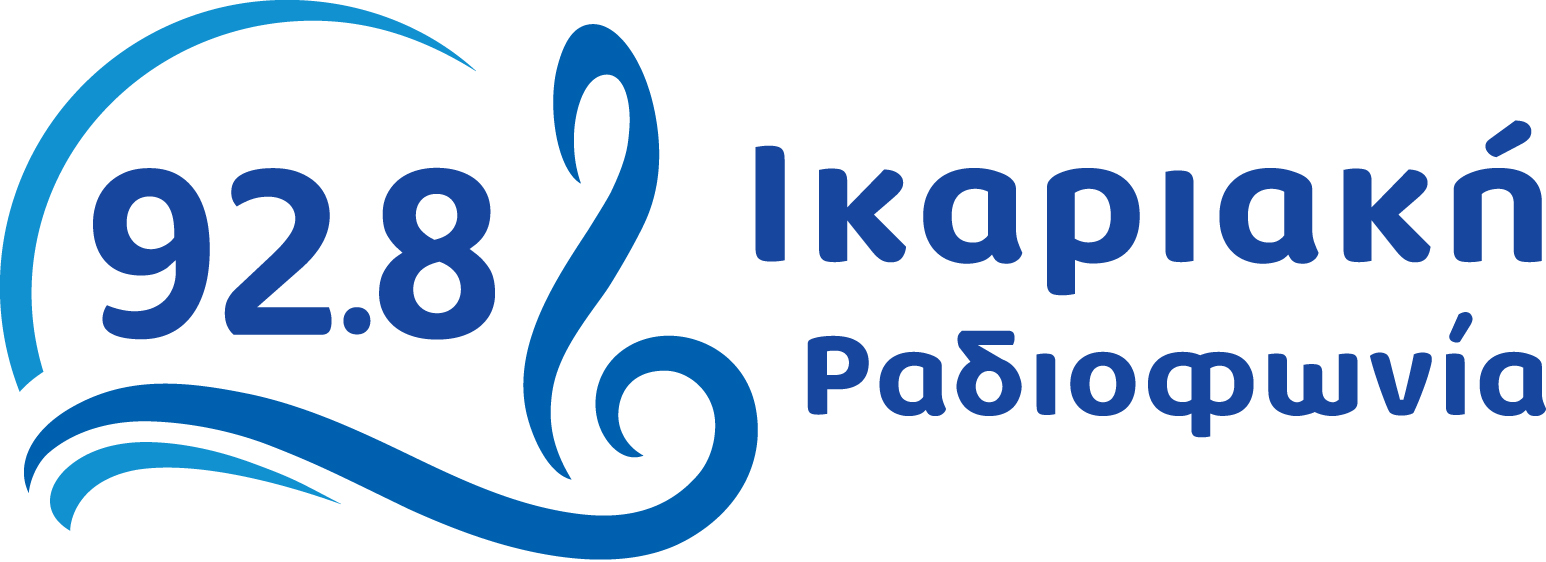 Στην κατάρρευση του μύθου πως οι φορολογούμενοι του Βορρά επωμίζονται τα χρέη του προβληματικού νότου εστιάζει το Reuters.
Στην κατάρρευση του μύθου πως οι φορολογούμενοι του Βορρά επωμίζονται τα χρέη του προβληματικού νότου εστιάζει το Reuters.
Στα τρεισήμισι χρόνια κρίσης και με τα πακέτα διάσωσης να έχουν ξεπεράσει τα 400 δισεκατομμύρια ευρώ, οι κάτοικοι της Βόρειας Ευρώπης δεν έχουν πληρώσει ούτε λεπτό του ευρώ
"Οι κυβερνήσεις της Γερμανίας, της Φιλανδίας, της Αυστρίας, της Ολλανδίας και της Γαλλίας έχουν εξοικονομήσει δισεκατομμύρια ευρώ χάρη στην πτώση των επιτοκίων δανεισμού τους.
Αλλά αυτό δεν εμπόδισε να ριζώνει στο μυαλό των σκληρά εργαζόμενων βορειοευρωπαίων ψηφοφόρων ότι βάζουν χρήματα από την τσέπη τους για να σώσουν τους σπάταλους και τεμπέληδες κατοίκους του Νότου, υπονομεύοντας με αυτόν τον τρόπο την ενότητα της Ευρώπης", αναφέρει χαρακτηριστικά το δημοσίευμα.
"Μια ακούσια συνέπεια της κρίσης ήταν η Φινλανδία να επωφεληθεί απρόβλεπτα από αυτήν", παραδέχεται, μιλώντας στο πρακτορείο, ο επικεφαλής του γραφείου των διεθνών και ευρωπαϊκών σχέσεων του υπουργείου Οικονομικών στο Ελσίνκι, Μάρτι Σάλμι.
"Δεν χάσαμε ούτε ένα λεπτό του ευρώ μέχρι σήμερα. Ό,τι ισχύει για τη Γερμανία ισχύει και για τη Φινλανδία" τόνισε.
Σε ό,τι αφορά τη Γερμανία, σύμφωνα με έρευνα της ασφαλιστικής εταιρείας Allianz, η χώρα στη διετία 2010-2012 εξοικονόμησε 10,2 δισεκατομμύρια ευρώ από την πτώση των επιτοκίων στα δεκαετή ομόλογα.
Μια άλλη μελέτη, του οικονομικού ινστιτούτου IFW, εκτιμά ότι το κέρδος στον ομοσπονδιακό προϋπολογισμό μόνο το 2011 ήταν 8,6 δισεκατομμύρια ευρώ χάρη στα χαμηλά επιτόκια της ΕΚΤ και το γεγονός ότι πλέον η Γερμανία θεωρείται το ασφαλές καταφύγιο για επενδύσεις. Το 2012 το αντίστοιχο ποσό έφτασε στα 9,6 δισεκατομμύρια ευρώ.
"Αν προσθέσουμε στο κέδρος από τα επιτόκια κατά την περίοδο 2010-2012 αυτά που θα έρθουν τα επόμενα χρόνια, καταλήγουμε σε μια συνολική ελάφρυνση των τόκων για το γερμανικό προϋπολογισμό ύψους 67 δισεκατομμυρίων ευρώ", αναφέρεται σε έγγραφο της Allianz που δημοσιεύθηκε τον περασμένο Σεπτέμβριο.
Η Φινλανδία, η Ολλανδία, η Αυστρία και η Γαλλία δεν έχουν μεν τα οφέλη της Γερμανίας, ωστόσο και αυτές οι χώρες έχουν δει μια σημαντική μείωση στο κόστος δανεισμού κατά την περίοδο της κρίσης.
"Οι χώρες της Βόρειας Ευρώπης σημειώνουν σημαντικά οφέλη από αυτές τις επιχειρήσεις, χωρίς καν να ανακατανέμουν αυτά τα άμεσα και έμμεσα οφέλη", δήλωσε ανώτερος αξιωματούχος στις Βρυξέλλες.
Η καρδιά της παρανόησης σχετικά με τις απώλειες των φορολογουμένων είναι το γεγονός ότι στο δημόσιο λόγο, η διαφορά μεταξύ του να δανείζεις και να δίνεις έχει πάψει να υφίσταται.
Και με το δημόσιο αίσθημα να είναι τόσο εναντίον των πακέτων διάσωσης να είναι τόσο ισχυρό σε μεγάλο τμήμα της Βόρειας Ευρώπης, δεν υπήρξε προθυμία εκ μέρους των πολιτικών να διορθωθεί η λανθασμένη αυτή αντίληψη.
Το αντιευρωπαϊκό κόμμα "Αληθινοί Φινλανδοί" στη Φινλανδία, για παράδειγμα, αντλεί υποστήριξη από την πεποίθηση ότι οι Φινλανδοί ξοδεύουν χρήματα για τους Νοτιοευρωπαίους.
Η κατάσταση είναι εντελώς διαφορετική. Το φινλανδικό υπουργείο Οικονομικών έχει κερδίσει επιπλέον χρήματα από την κρίση.
Πέρυσι, η φινλανδική κεντρική τράπεζα συνεισέφερε 227 εκατομμύρια ευρώ στον φινλανδικό προϋπολογισμού ως αποτέλεσμα των κερδών που έβγαλε από τα ελληνικά, ισπανικά και πορτογαλικά κρατικά ομόλογα που κατέχει. Το 2011 η αντίστοιχη συνεισφορά ήταν μόλις 187 εκατομμύρια ευρώ. Αυτό το έτος, το κέρδος θα ανέλθει σε 360 εκατομμύρια ευρώ.
Ο μόνος κίνδυνος για τον Βορρά, σύμφωνα με το Reuters, θα ήταν μία ενδεχόμενη χρεοκοπία ή έξοδος από το ευρώ.
Όμως, όπως αναφέρει Πορτογαλία, Ιρλανδία και Ισπανία έχουν διαφύγει τον κίνδυνο, ενώ η Ελλάδα, η οποία αποτελεί και το μεγαλύτερο ρίσκο, "δεν τα πάει άσχημα προς το παρόν και ενδέχεται να βελτιωθεί περισσότερο από όσο περιμέναμε", επισημαίνεται στο Reuters από στέλεχος της Κομισιόν.
Εκτός από τα αρχικά 52,9 δισεκατομμύρια ευρώ που είχαν δοθεί στην Ελλάδα το 2010, οι φορολογούμενοι της Ευρωζώνης δεν έχουν στείλει άλλα χρήματα στη χώρα. Τα χρήματα όλων τα υπόλοιπων πακέτων διάσωσης έρχονται από τις αγορές, μέσω του ευρωπαϊκού ταμείου διάσωσης.
"Ακόμα κι αν χρειαστεί να διαγράψουμε και 1 δισεκατομμύριο ευρώ από το χρέος της Ελλάδας μέσα στα επόμενα δέκα χρόνια και πάλι θα έχουμε βγει κερδισμένοι", δήλωσε ο Μάρτι Σάλμι και με αυτή τη δήλωση καταλήγει το δημοσίευμα.
Ακολουθεί το δημοσίευμα από το reuters.com
Analysis: What taxpayer bailouts? Euro crisis saves Germany money
(Reuters) – Throughout Europe's debt crisis, northern European leaders have often said they will not stand for taxpayers having to fork out for other countries' problems, and the notion of "taxpayer-funded bailouts" has taken root.
Yet despite three-and-a-half years of debt and banking turmoil, with bailouts totaling more than 400 billion euros, northern euro zone taxpayers have not actually lost a cent.
What is more, governments in Germany, Finland, Austria, the Netherlands and France have saved billions of euros thanks to a sharp fall in how much they pay to raise money in financial markets since their borrowing costs have dropped steeply.
But that has not prevented the image taking root in voters' minds of hard working northern Europeans putting money on the line to rescue profligate, work-shy southerners, fuelling resentment and undermining Europe's unity.
In the run up to German elections in September, that resentment is only likely to grow, and Chancellor Angela Merkel, bidding for a third term in office, will have to reaffirm her commitment to protect voters from potential losses.
But the truth remains that German taxpayers, as well as those in Finland, the Netherlands and elsewhere, are no worse off at all, and their finance ministries have racked up savings.
"As an unintentional consequence of the crisis, Finland has benefited enormously," said Martti Salmi, the head of international and EU affairs at Finland's ministry of finance.
"We have not lost a cent so far," he told Reuters. "The same as for Germany very much holds for Finland."
In fact, German officials are well aware of their stronger financing position, the result of a more than two percentage point fall in borrowing costs, even as politicians continue to lament the risks being piled on German taxpayers.
When giving presentations in Germany, Klaus Regling, the German who heads the euro zone's permanent bailout fund, often cites two studies that show that Berlin has reaped substantial savings as an unintended consequence of the crisis.
One study, by German insurance giant Allianz, has calculated that Berlin saved 10.2 billion euros in 2010-2012 because of lower borrowing costs, as yields on its 10-year bonds fell from 3.39 percent to 1.18 percent now.
The other study, by Jens Boysen-Hogrefe of the IfW economic institute, suggests that the German federal budget saved 8.6 billion euros in 2011 due to low ECB interest rates and the safe-haven impact of investors putting money into Germany.
Those savings rose to 9.6 billion in 2012 and the safe-haven effect will alone be worth 2 billion in 2013, IfW said.
"If we add up the interest rate advantages gained in the period 2010 to 2012 and those that Germany will benefit from in the years to come, we arrive at cumulative interest relief for the German budget of an estimated 67 billion euros," Allianz said in a paper published last September.
"(That is) enough to slash around 3 percentage points off Germany's government debt ratio," which reaps further saving.
Finland, the Netherlands, Austria and France may not have gained as much as Germany, but have also seen a substantial decline in borrowing costs over the crisis period.
"Northern European countries are making a considerable profit out of these operations and they are not even redistributing these direct and indirect benefits," said a senior official in Brussels.
MYTH-O-NOMICS
The heart of the misconception about taxpayers losses is the fact that in public discourse, the difference between lending and giving has ceased to exist.
And with anti-bailout sentiment so strong in much of northern Europe, there has been no willingness on the part of politicians to correct that misconception. The anti-EU True Finns party in Finland, for example, draws support from the belief that Finns are spending money on southern Europeans.
The situation is quite different. While Finland may be providing lots of guarantees to the eurozone's bailout funds and has lent money to bailed out countries, the Finnish finance ministry has earned extra money from the crisis.
Last year, the Finnish central bank contributed 227 million euros to the Finnish budget as a result of profits made on the Greek, Spanish and Portuguese government bonds it holds, 40 million euros more than it made in 2011.
This year, the profit should rise to 360 million.
THE TRUE RISK?
For any euro zone country that has provide bailout assistance to lose money, Greece, Ireland, Portugal, Spain or Cyprus would have to default on the loans they have received.
But rather than being close to default, Portugal and Ireland are near to exiting their bailout programs and pose little risk, while the chance of default Spain has always been minimal and is closely managed in Cyprus.
Greece, which has received 166 billion euros in bailout loans, poses the biggest risk, but even that is changing.
"With every day, the risk that Greece would cost taxpayers anything decreases," a second EU official said. "It is not doing badly at the moment and there is a possibility it may do better than assumed."
Apart from the initial bilateral loans to Greece in 2010 which totaled 52.9 billion euros, no euro zone taxpayer money was sent to Greece, or any other country. All the later bailouts were financed on markets via the eurozone bailout fund.
Officials said that even if any of the bailed-out countries were to not pay back some of the money borrowed from euro zone governments, the alternative — a euro zone break-up — would have been a much costlier affair than any bailout losses.
A study commissioned by the German Bertelsmann Foundation showed this week that if Germany were to return to its old Deutschmark, its annual GDP would be 0.5 points lower between 2013 and 2025, resulting in a loss of 1.2 trillion euros over the 13 years – half the size of the German economy in 2012.
"It is possible that we will get out of it without getting our feet wet, or with getting our feet wet only a little bit," Finland's Salmi said about the likelihood of a default on any of the bailout loans extended to rescued countries.
"But if we end up forgiving a loan of 1 billion euros to Greece sometime in the next 10 years, that's nothing compared to what we would have faced if we had a meltdown of the euro zone. It would be completely insignificant compared to that," he said.
(Additional reporting by Mike Shields in Vienna, Ritsuko Ando in Helsinki and Annika Breidthardt in Berlin; Editing by Luke Baker)


